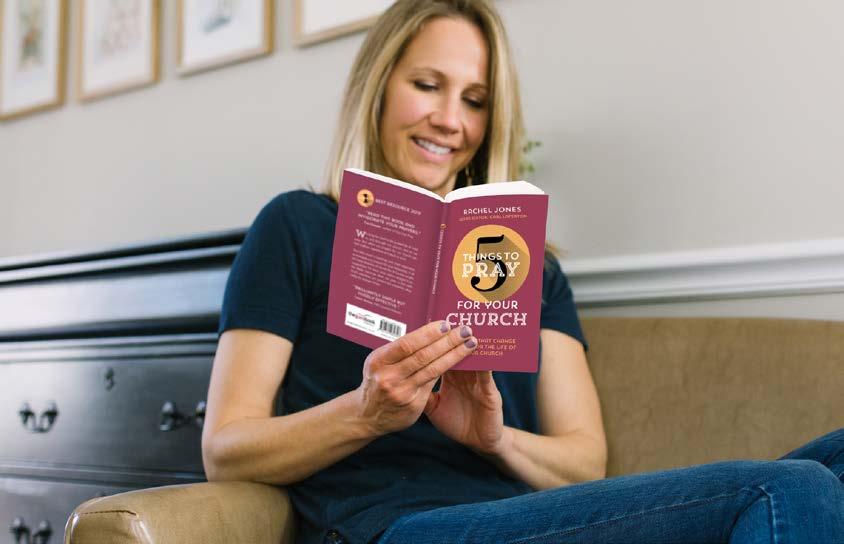
5 minute read
books that will help you to live out the hope that you have
Live Out the
Hope That You Have
Advertisement
How to cling to the gospel and offer it to those around us in a post-Christian culture, where our views are not only seen as wrong but possibly dangerous.
Stephen McAlpine £8.99 £7.64
Learn how to engage with everything you watch, read and play in a positive and discerning way that helps your relationship with Christ and points others to him.
Daniel Strange £7.99 £6.79
Explore how Christ’s church can thrive in an increasingly hostile culture, and what Christian courage looks like in the age of unbelief.
Matt Chandler £7.99 £6.79
Godly Christian women talk about a range of areas of life and culture, and help us to engage with them in a God-honouring way.
Trillia J. Newbell £7.99 £6.79
This book reflects on Jesus’ words that he is “gentle and lowly in heart” and what it means for sinners and sufferers today.
Dane Ortland | Hardback
£14.99 £9.99
Shows how embracing doubts and questions can help us to get to know God better, and encourages us to trust God, even when some questions remain.
Barnabas Piper £8.99 £7.64
How to overcome division and experience the full Christian life by embracing the tensions in the Bible.
Adam Mabry £8.99 £7.64
Examines the first seven chapters of Daniel to show us that living by faith in Daniel’s God will enable us to live bravely, confidently and obediently.
Alistair Begg £7.99 £6.79
Helps us to grow in gratitude as we use Scripture to thank God for who he is as well as for his blessings.
Mary K. Mohler £7.99 £6.79
READ AS A CHURCH
GROW IN LOVE FOR YOUR CHURCH

It’s been a long time since churches met in their usual form. This timely new book by Tony Merida looks at what church is, why it’s exciting and how you can be part of it.
As image-bearers of God, people are made for community. The triune God is a relational God, and he has created us for relationships. Perhaps this is why so many popular television shows have to do with community. In the 80s, Cheers featured a group of friends who met to socialize at a local bar. Friends, a show revolving around six friends who live in Manhattan, was wildly popular in the 90s. (And this show has recently witnessed a resurgence of interest among millennials and Gen-Zers.)
God has given us a need for community—and he has given us the place where that need for community is met: the church. Sin breaks fellowship with God and with others, but we are reconciled to God and one another through the gospel. God, then, establishes this unity in Christ. But we do have to maintain it (Ephesians 4 v 2). He gives us a place where we belong; now we need to commit to belonging.
Experiencing the blessing of community requires you to avoid distancing yourself from other brothers and sisters in the church, and to avoid neglecting times together (in small groups, in corporate worship, and in ongoing communication). This is what made the COVID-19 experience so challenging, and it is why churches creatively tried to keep believers
connected in community and worship, albeit in less than ideal ways.
When I began following Jesus in college, I was very involved in campus ministry and local outreach events, but actually I thought I could do more apart from the local church. I thought the church would slow me down. I was into “movements” and “events,” not the church. I was aware of crazy drama in churches and wanted no part of it. I was interested in ministering to my age group (or slightly younger), not to a multigenerational group of folks. I was into the Christian subculture, not slowplodding faithfulness in the context of the church.
Much of this was due to my shoddy understanding of the church prior to studying the Scriptures carefully. I had failed to see the church from Jesus’ perspective—to understand the way the Bible describes the church. And I believe that there are many in this same position today. We cannot allow experience or preference to rule us when considering the church; we must see the church biblically. And that means seeing the church joyfully. Belonging to a church means investing your life in a gospel-centered community of believers who joyfully serve one another and advance Jesus’ mission together. Several decades ago, the great Welsh preacher D. Martyn Lloyd-Jones underscored the need for a joyful church:
“The greatest need of the hour is a revived and joyful church … Unhappy Christians are a poor recommendation for the faith … The exuberant joy of the early Christians was one of the most potent factors in the spread of Christianity”. (Spiritual Depression, p 5)
It’s this joy—a Christ-centered joy experienced even in suffering—that’s unique, powerful, uplifting, and attractive. This doesn’t mean the church will be devoid of sorrow; it means that even in sorrow there is a well of joy from which to drink: the wells of our salvation. In hard times, we can be “sorrowful, yet always rejoicing” (2 Corinthians 6 v 10).
It’s a privilege to belong to the new-covenant people of God: to be part of those who have been saved through repentance and faith in Christ Jesus, who possess the indwelling Holy Spirit, who are joined in a local gathering, who assemble to hear the word preached, who engage in corporate worship, who are led by qualified pastors/ elders, and who enjoy the wonder of baptism and the Lord’s Supper. It is an awesome thing to be part of those who commit to practicing the “one another”s of Scripture, and who scatter to fulfill the Great Commandment (love your neighbor) and the Great Commission (make disciples of all nations).
Active belonging is the first privilege and responsibility of every Christian, and the doorway to the others.
Free small group materials available including downloadable worksheets, introductory videos for each chapter and discussion guides. Go to thegoodbook.





